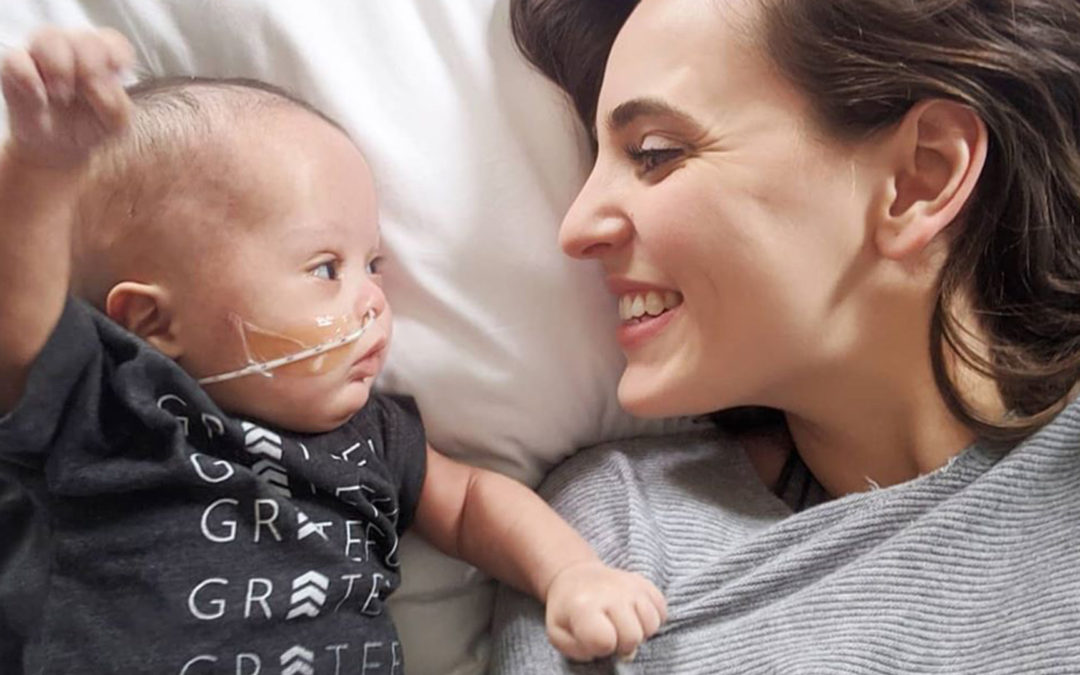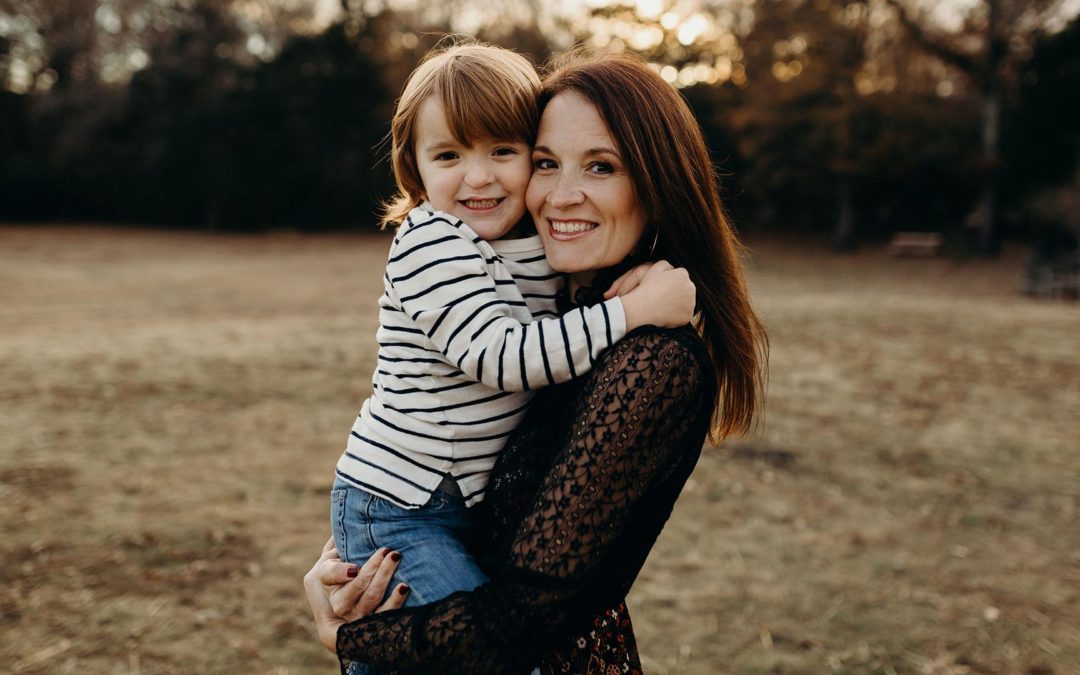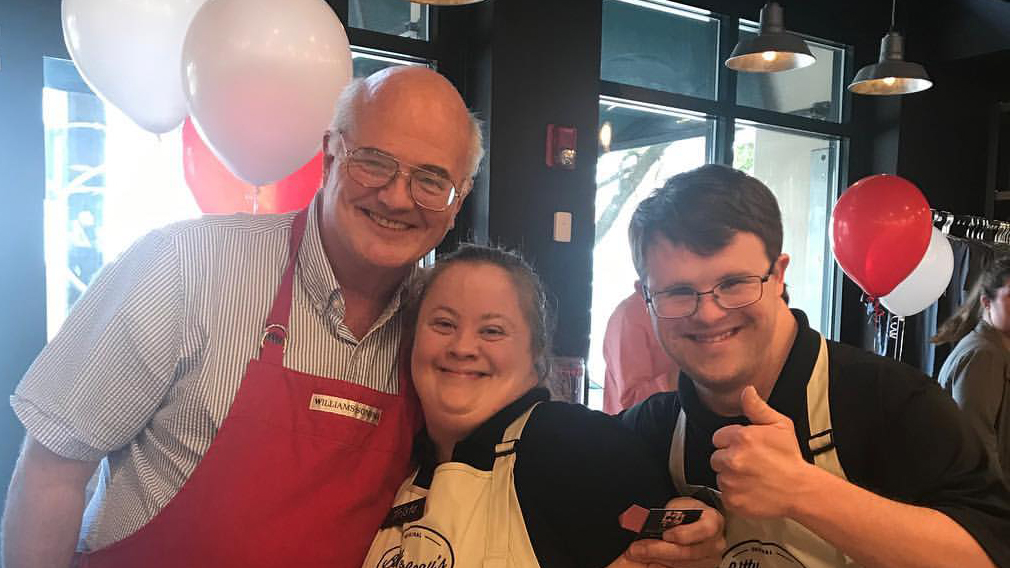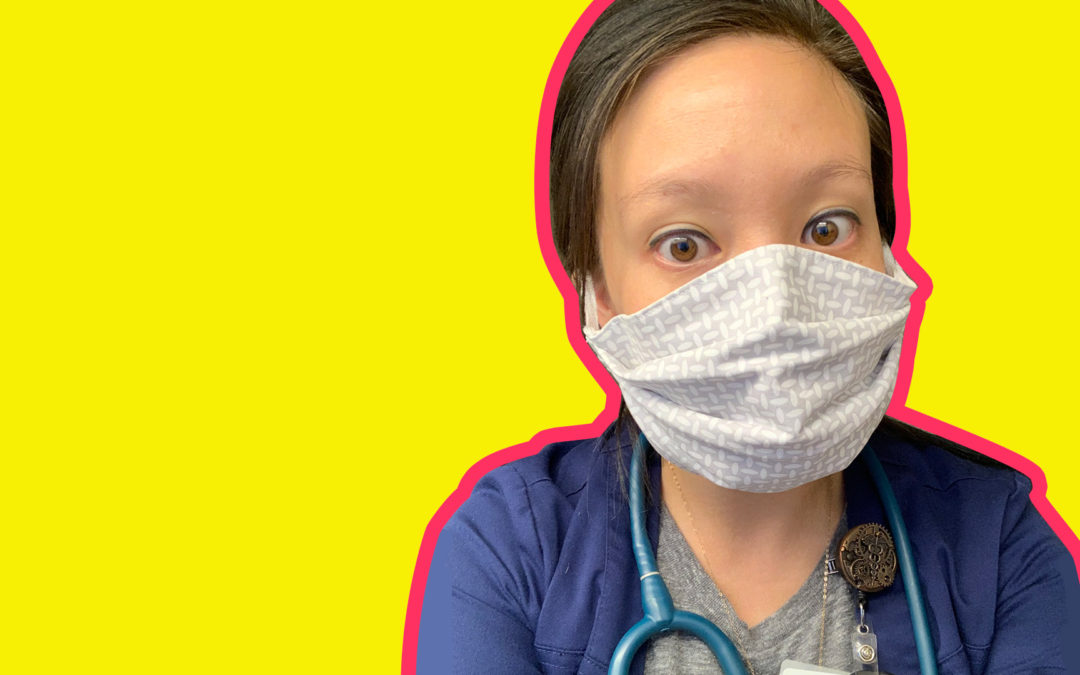Is COVID-19 causing an increase in pregnancy discrimination in the workplace?
On May 13th, MedStar Southern Maryland Hospital Center informed Elizabeth Watts they’d be terminating her contract. She was a frontline healthcare worker in the ER department during the height of the COVID-19 pandemic, and she was 20 weeks pregnant.
“I didn’t feel comfortable exposing myself or my unborn child to patients with COVID.”
At the time of her hire, MedStar Southern Maryland was operating according to policies and procedures that protected pregnant healthcare workers. These included not allowing them to care for patients with confirmed or suspected COVID cases. For the first few weeks, those same policies applied to her.
Then one day, management assigned her to the EMF section, a 12-bed area that typically housed 10 to 11 patients with COVID. Elizabeth, who had been careful to ensure she was not on a COVID-specific contract because of her pregnancy, appealed to the assistant director of her department.
“The director said there were no exceptions for me and that I would have to take care of patients with COVID or terminate my contract.”
Elizabeth went to MedStar Southern Maryland’s HR department to make her case. Since she was contracted, she also phoned Medical Solutions, the agency that contracted her as a travel nurse. Medical Solutions referenced MedStar’s pregnant worker protections and promised to follow-up with them about the situation. While she awaited a response, Elizabeth showed up to work the following day and discovered she was scheduled to care for the only COVID patient in the whole unit.
MedStar’s HR department never addressed her concerns. Instead, they told Elizabeth that she would need to care for patients with confirmed and suspected cases of COVID. If she wasn’t willing to do that, they would terminate her contract without any “ill will.” Concerned for her pregnancy, Elizabeth didn’t see a path forward.
Even so, Medical Solutions directed Elizabeth to show up to work the next day, where she was immediately–in embarrassing fashion–asked to leave the premises. When she asked, MedStar Southern Maryland was unwilling to provide a letter citing the reasons for her termination.
“It felt like a slap in the face,” she says.
Forced to leave, Elizabeth filed charges for pregnancy discrimination with the Equal Employment Opportunity Commission against MedStar Southern Maryland Hospital Center and Medical Solutions.
“Protections for pregnant workers in the healthcare industry aren’t just for times when there’s nothing on the line. They’re for times like this.”
Do extraordinary circumstances excuse MedStar Southern Maryland and Medical Solutions? The hospital, no doubt, was stretched thin because of COVID. They may have laid off full-time staff due to the nationwide pause of elective procedures. And they contracted travel nurses, like Elizabeth, to solve the overwhelming situation created by the surge in COVID cases. Some nurses, MedStar says, were brought in on specific COVID contracts. Are claims of pregnancy discrimination unfair and short-sighted?
This might be the case if pregnant healthcare workers were unable to provide valuable services to the hospital. But this was not the case.
Protecting the health and wellbeing of pregnant healthcare workers is materially valuable, because pregnant healthcare workers still provide valuable skills. “We can still perform a normal nursing job,” Elizabeth says. “I can still get on a patient and do chest compressions for however long that code runs–an hour, two hours. I can still put IVs and run a patient to the cath lab. My skills are still there.”
Moreover, services provided to non-COVID patients remain valuable to the hospital during a COVID pandemic. “There are numerous patients that would have felt comfort knowing I had not come in contact with COVID,” says Elizabeth. “Patients suffering from cancer, young children, the elderly.”
Even so, the hospital gave her no choice. She would see patients with COVID, despite her pregnancy and despite existing protections for pregnant workers–or be terminated. To Elizabeth, this news was maddening, but it came as no surprise.
“I’ve been in healthcare for 13 years, and I’ve never really seen anyone [in leadership] rally to help pregnant healthcare workers.”

Before her stint at MedStar Southern Maryland, Elizabeth spent a year working in middle management. While there, she witnessed the healthcare industry’s ironic pregnancy double-standard: sparing no expense or inconvenience to care for pregnant patients, yet unwilling to accommodate basic needs of pregnant healthcare workers.
“It’s required to have an area where mothers can sit down [and pump],” she says. “The area they provided [to staff] was outside the hospital in the HR office across the street.”
According to Elizabeth, this pattern isn’t unusual. Management adheres to the letter of the law and stops there. The responsibility of caring for pregnant workers falls on coworkers who don’t call the shots.
“So I took it upon myself,” Elizabeth says. “I didn’t find it fair that they had to walk [so far] to the HR building basement to pump, so I allowed them to pump in my office. I left a key there during the night shift too.” In addition, Elizabeth took extra measures to provide them with extra breaks and allowed them to step off the unit on occasion to avoid dealing with stressed patients and family members.
Pregnancy discrimination in the workplace is far too common across all major American industries. But for pregnant healthcare workers, the problem is even worse. According to research from the National Partnership Between Women and Families, nearly 1 in 4 (24%) pregnancy discrimination charges are filed against employers in the healthcare and social assistance industry.
The issue is part of a broader, systemic social problem that the numbers confirm.
Today, most women (61%) hold a job prior to giving birth. In the last decade, 35,000 women have filed pregnancy discrimination charges with the Equal Employment Opportunity Commission. Such charges, according to the New York Times, have been filed against Walmart, Merck, AT&T, Whole Foods, 21st Century Fox, KPMG, and Novartis.
Even still, this number does not include the thousands more who have filed charges with Federal Employment Practices Agencies (FEPAs). Nor does it include the thousands of occasions when pregnant women and mothers face workplace discrimination but never say a word for fear of losing their livelihoods in a highly-emotional, long-lasting legal battle.
The National Partnership for Women and Families estimates that, conservatively, 250,000 women are denied requests for reasonable workplace accommodations during pregnancy and immediately following childbirth in the US every year.
Moreover, COVID appears to have exacerbated the problem. A Better Balance, a nonprofit legal organization supporting pregnant women in the workplace, told the New York Times that calls to their free legal helpline have more than tripled during the pandemic.
COVID has caused yet another spike in the war against the compatibility of motherhood and livelihood. Every year in the U.S., 300,000 women get abortions because of that perceived incompatibility. Many women choose this path of their own volition, but many others feel trapped by a society that puts children at odds with professional survival.
Before COVID ever hit the healthcare industry, Elizabeth Watts felt that same tension between motherhood and career. “The first time I found out I was pregnant, I was super nervous” she says. “Having to finish grad school, working in a level-one trauma hospital, it was something I wanted to wait and have more planned out.” But once the initial shock wore off, it also inspired her to reach higher.
“Finding out I’m having a little girl really made me want to bring light to this situation.”

Today, Elizabeth stands courageously for pregnant workers against two powerful corporations in the healthcare industry. MedStar, she says, needs to double-down on protecting their pregnant workers during this public health crisis. This includes protecting the high volume of travel nurses that care for their patients everyday. Medical Solutions, meanwhile, ought to “stand by their nurses better,” instead of siding with their clients “because that’s who they make money from.”
Despite the risk of going public with her story during the pandemic, Elizabeth is convinced that the prevalence of the problem, backed by statistics and her own experience, is more important now than ever. “I don’t ever want another pregnant healthcare worker to feel like they’re disposable to any corporation because of pregnancy,” she says.
To this end, she’s asking for pregnant healthcare workers across the nation to open up about their stories and demand an end to pregnancy discrimination in the workplace. “You hear things throughout the healthcare industry,” Elizabeth says, “I think that a lot of the nurses just don’t come forward.”
DID YOUR EMPLOYER DISCRIMINATE AGAINST YOU BECAUSE YOU WERE PREGNANT?
We would love to hear from you. Share your story with us to help protect pregnant workers across the nation.
Your name will not be published without your permission, and your contact information will not be published. A Voices team member may follow-up with you about your story to get further information.
Sources:
By the Numbers: Women Continue to Face Pregnancy Discrimination in the Workplace, National Partnership for Women & Families
Listening to Mothers: The Experiences of Expecting and New Mothers in the Workplace, National Partnership for Women and Families
Pregnancy Discrimination Is Rampant Inside America’s Biggest Companies, New York Times
What Rights Do Pregnant Workers Have in a Pandemic?, New York Times
Reasons U.S. Women Have Abortions: Quantitative and Qualitative Perspectives, Guttmacher Institute
Josiah Friedman is the Founder and CEO of Voices for the Voiceless, the movement to create a world where every person is valued and no one faces unplanned pregnancy alone. You can watch Josiah’s TED Talk here or reach him at josiah@vftv.org.
Related Articles

4 Pieces of Advice for the Parent who Just Received a Prenatal Diagnosis of Down Syndrome
4 Moms Open Up about Their Diagnosis Journeys

How One Mom is Ending the Stigma Behind Cleft Palate Diagnosis
My interview with Meredith Smith

“Trista the Barista” proves employees with Down syndrome enrich the workplace
Meet Trista Kutcher, a coffee shop barista, fitness enthusiast, and hip hop fanatic!

